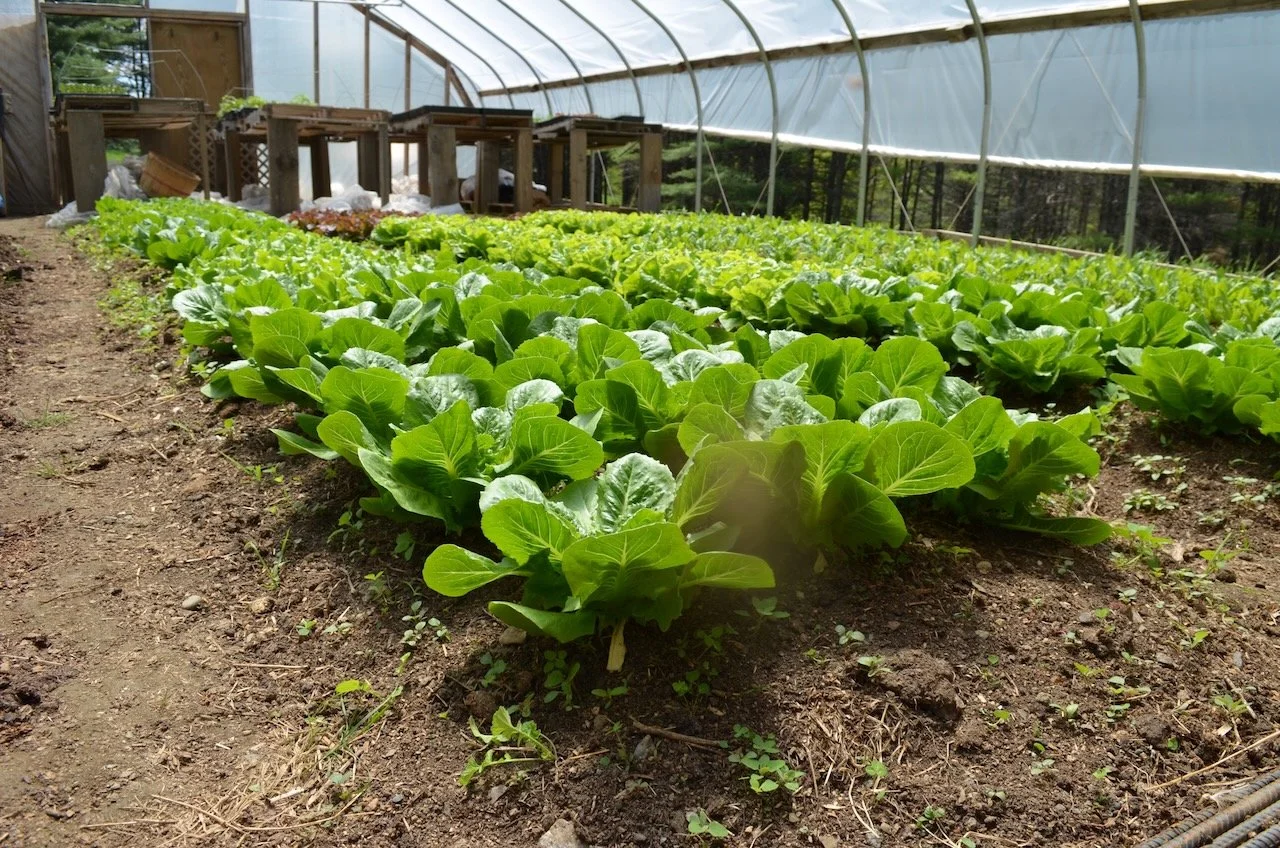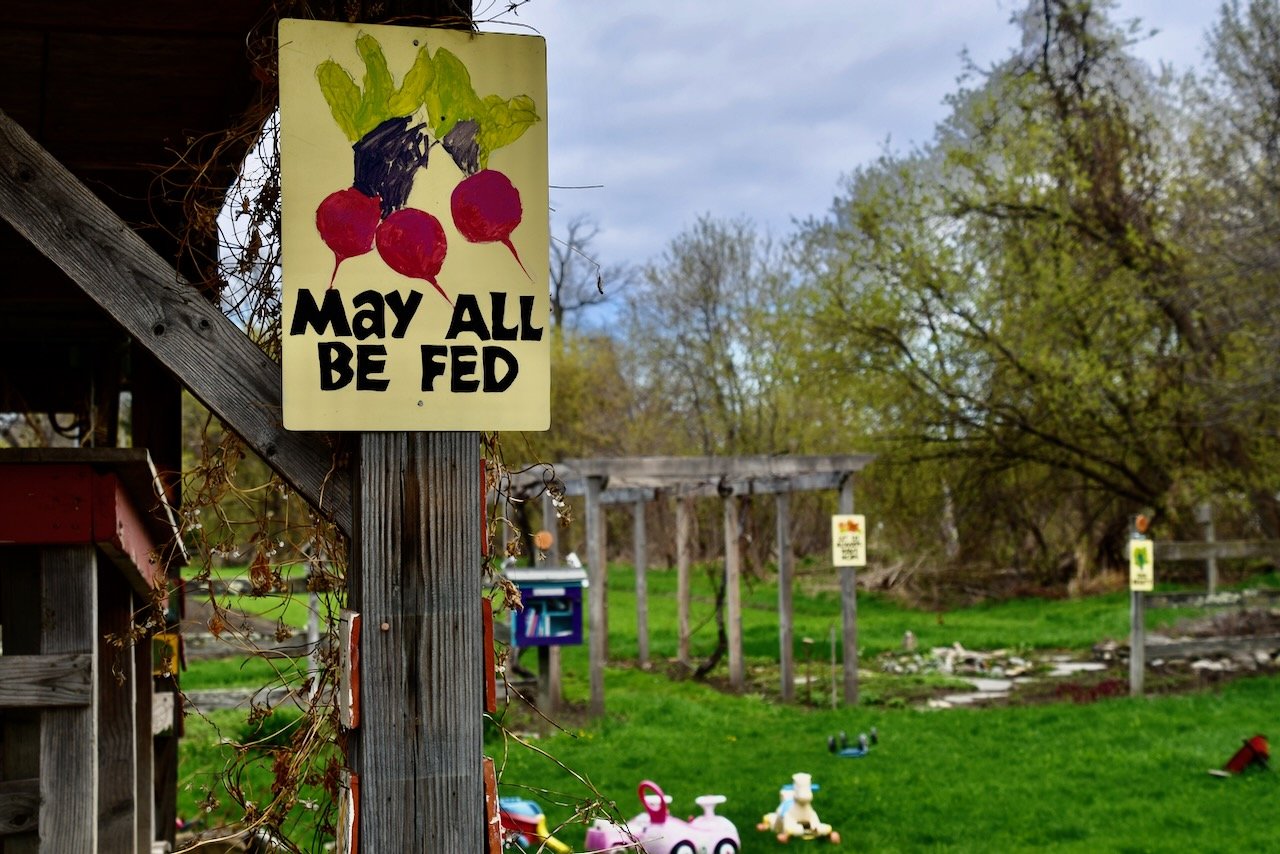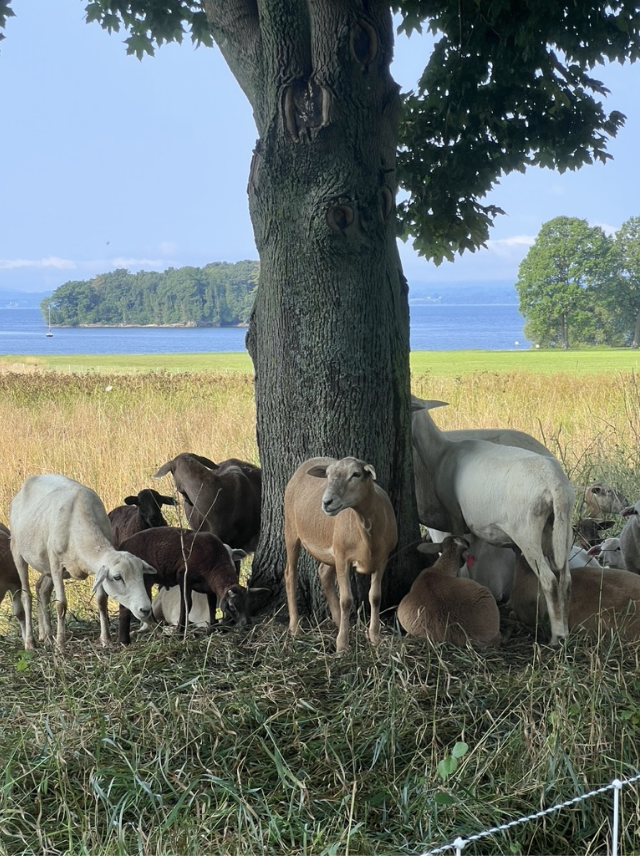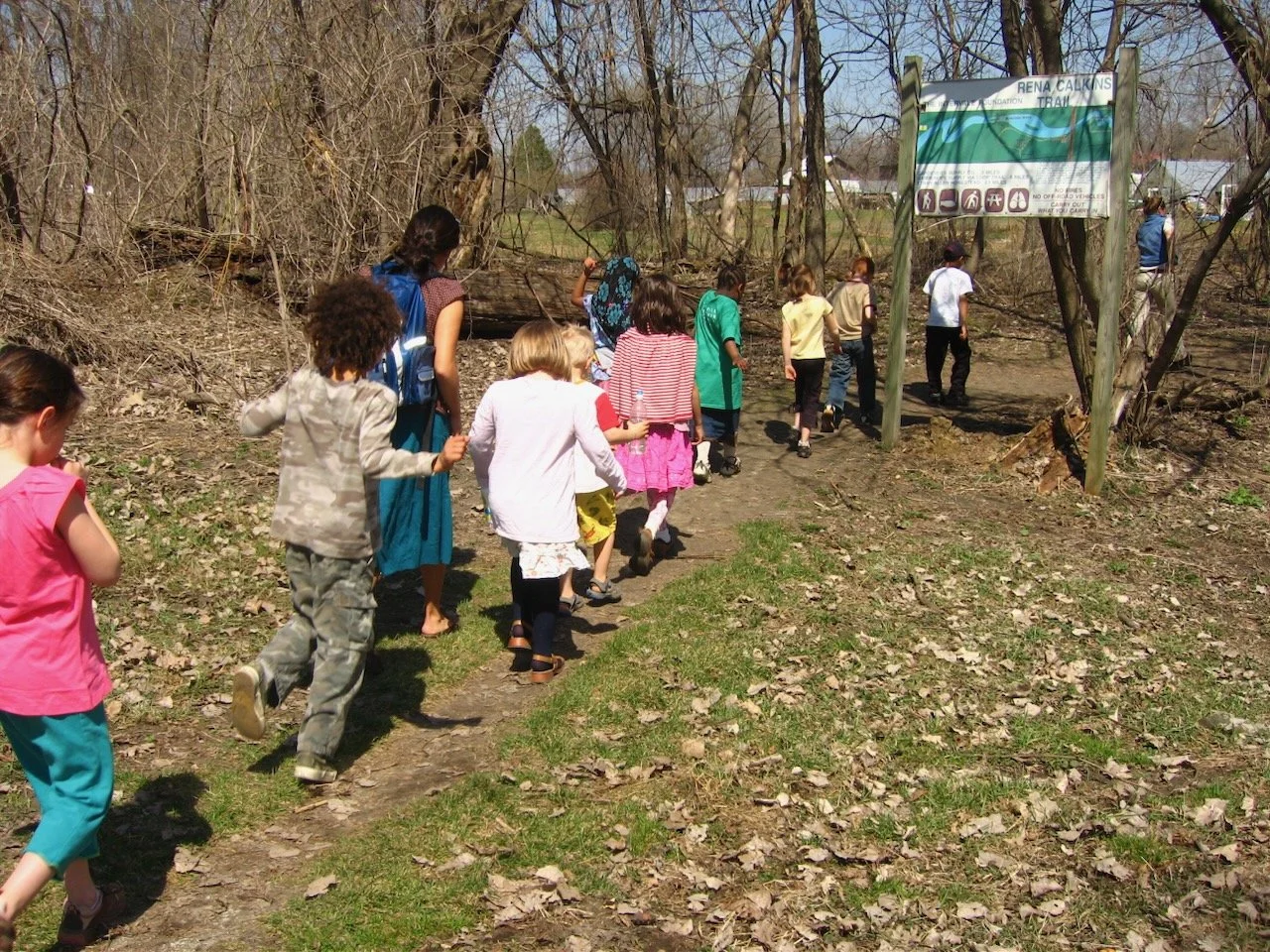Feeding the Future
How Molly Anderson Is Using Systems Thinking to Nourish People, Land, and Democracy
Nadine Canter (NC): Wildlands, Woodlands, Farmlands & Communities (WWF&C) is a movement; it is holism. How do you see food systems as part of an integrated approach that brings land and people together?
Molly Anderson (MA): Food is one of the main ways people connect with our environment. And the ways that food is produced, distributed, and consumed have powerful impacts on environmental quality, as well as the well-being of humans and our other-than-human neighbors. I see WWF&C as a movement seeking to make humans’ interactions with the world around us healthy, nourishing, and healing. Food is an essential part of that! If we leave food systems out of the work, then we’ve ignored one of the main drivers of environmental, social, and cultural degradation.
Inside the hoophouse at a Community Supported Agriculture farm. Photo © Liz Thompson
NC: You’ve been based in New England for many decades: Massachusetts and Maine for 42 years, then Vermont for the last 10. How would you characterize New England’s food system scene?
MA: New England was ahead of other regions in recognizing the importance of local food and creating many food system innovations—like Community Supported Agriculture (CSA) and food cooperatives—that are good for farmers as well as their customers. Here in New England we consistently support small-scale farmers growing food (versus commodity crops for feed, biofuel, or industrial purposes), and we have a number of excellent organizations that are fighting for land preservation, farmers’ rights, farm workers, healthy food for all, and agroecology.
Photo © Liz Thompson
NC: How do policies in your home state of Vermont support and implement A New England Food Vision, a report of which you are a co-author with From the Ground Up’s Brian Donahue and several others?
MA: Vermont people love farmers, but many of the key aspects of A New England Food Vision are extremely difficult to implement here. We are hampered in our ability to start new farms because of the high price of farmland, and although we have many excellent state legislators, our governor wants to rescind universal access to free school meals. That’s one of the easiest and first ways to implement the right to food, which we argue is essential in the Food Vision report. In addition, the state is cash poor. So we haven’t been able to fill the gaping holes in programs—holes generated by cruel and regressive national policies that are completely inconsistent with the vision we put forward.
“The ways that food is produced, distributed, and consumed have powerful impacts on environmental quality, as well as the well-being of humans and our other-than-human neighbors.”
Goats grazing in rotational method at Meach Cove Farm in Shelburne, Vermont. Photo © Nadine Canter
NC: How can a functional food system make us more resilient as we face enormous challenges in this current political economy?
MA: A functional food system relies on trusting relationships between actors, which are a core of solid communities as well. Community bonds make us resilient to the challenges we face, and eating healthy food together is a great way to build community. Agroecological practices make us more resilient to floods and droughts, which are coming with greater frequency. And widespread democratic participation is essential to creating support for our shared values of healthy food for all, equity, thriving communities, and a biodiverse healthy environment. By growing far more of the food we consume, and paying growers fairly for it, we can become more self-sufficient, even as supports that could have increased our resilience to the national government are crumbling.
Artwork by Janine Weiss
NC: You were a systems thinker and scholar before it was recognized in academia and research. What drew you to ecology and interdisciplinary studies in the first place, and why “food” systems?
MA: I realized early on that I wanted a job that allowed me to work outside. I’ve always been curious about how systems work and why they are the way they are—before I had a vocabulary to talk about “systems.” Understanding how systems work requires information from many different sources and perspectives, so restricting oneself to one discipline is really counterproductive. Food systems are especially interesting because they touch everyone, and they affect and are affected by so many factors, from environmental trends to geopolitical realities. Transforming food systems requires multiple entry points, strategies, and partners, so the possibilities for meaningful work in food systems are nearly unlimited.
“A functional food system relies on trusting relationships between actors, which are a core of solid communities as well.”
NC: Donella Meadows’ trajectory of systems thinking and transformation led her to create a newspaper column to educate and inform beyond academia. She coined the term “informationsphere” as the place for public discourse to overcome unsustainable practices. She was tired of seeing the biosphere falling apart, and wrote in 1991, “I had to do it through the media, because systems theory taught me that there, squarely in the informationsphere, was the place to change the world.”1
The title of your new book, Transforming Food Systems: Narratives of Power, seems to allude to just the place Meadows’ work had evolved to—from theoretical to applied systems theory work. How did you come to this place in your food systems work? How do you characterize the relationship between narratives and power?
MA: Narratives are the ways that power is exerted and reinforced. I saw that the need for transformation of food systems is widely recognized, but the pathways are quite contentious and propped up by narratives—sometimes false, but still widely believed. If we can change the dominant narratives, we can change how society views alternatives for living well on the earth and living within the planet’s boundaries.
NC: Tell us more about how your work links to justice and equity.
MA: There is no sustainability, and no hope for humans, without justice and equity. We are living in a world where the increase of inequity is not seen as a problem. Instead, those who consider themselves superior “succeed” on the backs of others. Recent Executive Orders have rolled back fundamental legislation and programs which many people fought hard to secure, and these rollbacks have made reliable access to basic needs such as food and health care much more difficult. This reinforces a fundamentally unstable society, and I believe that it won’t be tolerated in the long run. Unfortunately, there is considerable suffering in the short term—and it’s likely to get worse before it gets better. And I trust that we will be able to hold accountable those who are destroying democracy and undermining our prospects of a healthy future. Organizations and partnerships that are aiming for regeneration of communities, landscapes, and food systems need our support in this work of recovering democracy and creating enabling conditions for a vibrant, beautiful environment.
Photo © Liz Thompson
1 Meadows, D. H. (1991). Changing the world through the informationsphere. In C. L. LaMay & E. E. Dennis (Eds.), Media and the environment (p. 67). Island Press. (Reprinted from Gannett Center Journal, 4[3], 1990.)
Molly Anderson is a Research Associate Professor at the University of Vermont in the Institute for Agroecology, and is the William R. Kenan Jr. Professor of Food Studies Emerita at Middlebury College in Vermont. She teaches about hunger and food security, fixing food systems, and sustainability. She is especially interested in multi-actor collaborations for sustainable food systems, sustainability metrics and assessment, food system resilience, human rights in the food system, and the right to food in the U.S. and other industrialized countries.
Nadine Canter is a writer, lecturer, and network builder. Her inquiries are rooted in “we”—the mysteries of unity and holism to re-weave humans back into the Earth story. She is located in Vermont, where she serves as an advisor, a Tai Chi Chuan and Daoism student, and a Lecturer at Middlebury College. Her mission is to create and support webs of communication and resource sharing to nourish human and nonhuman mycelial networks.





